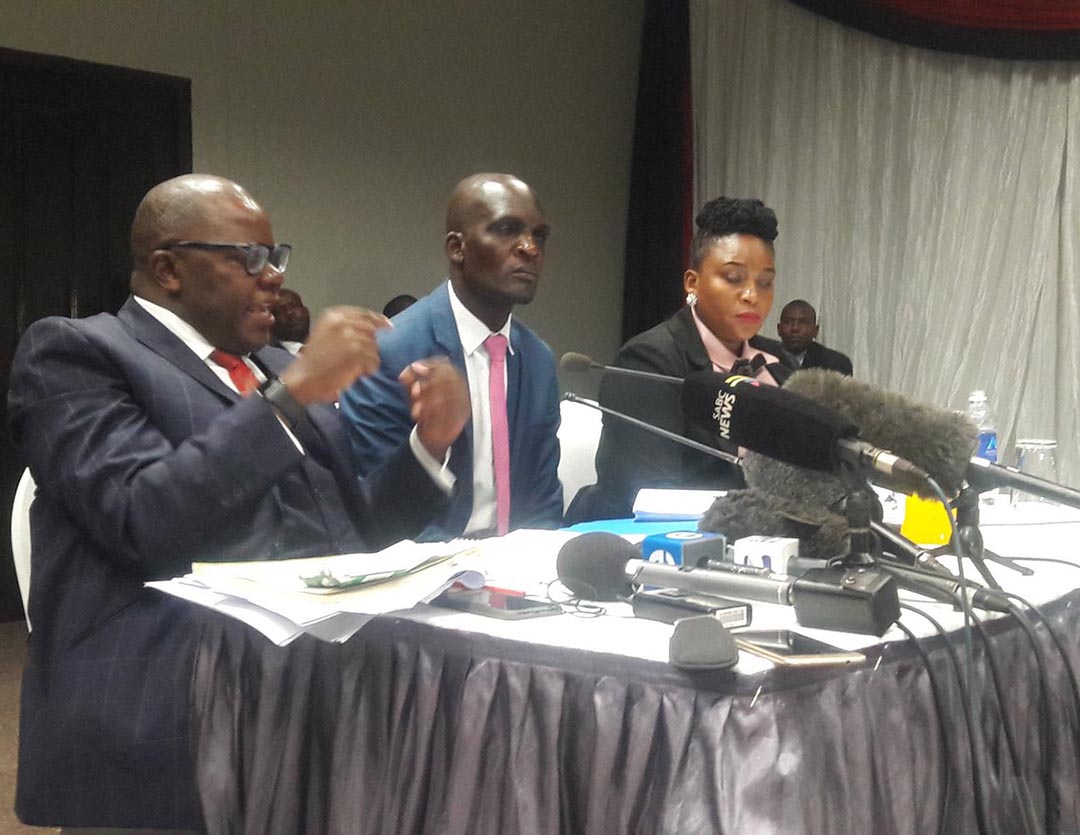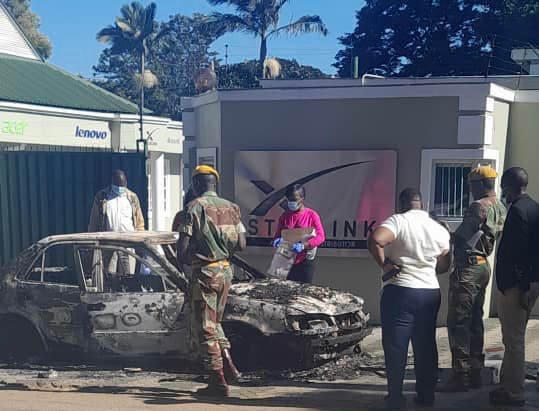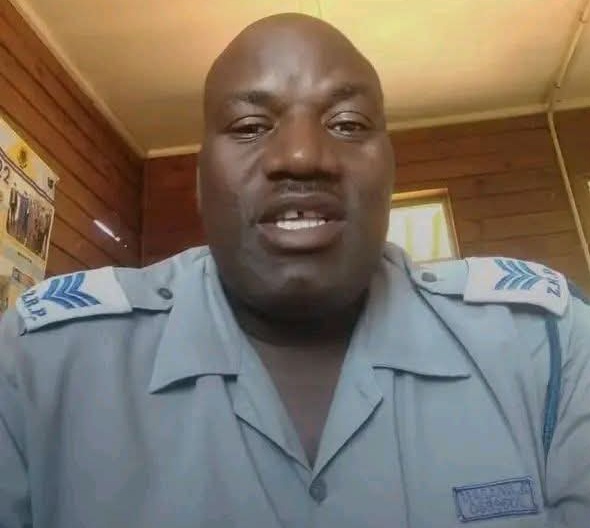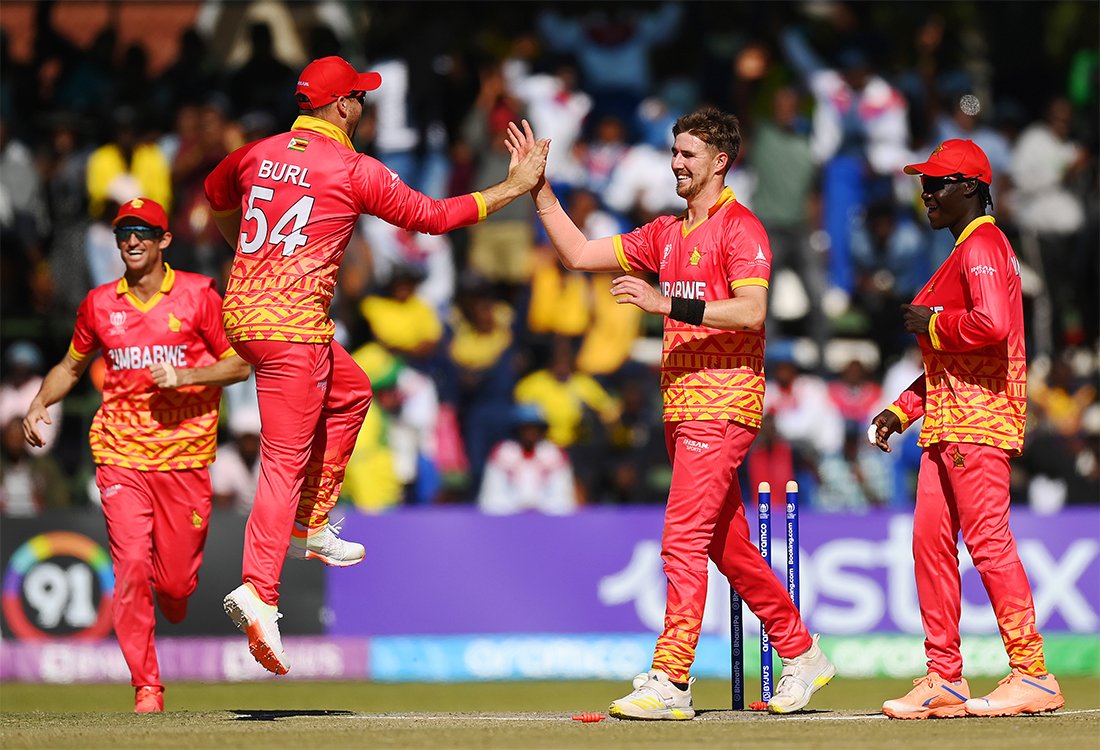HARARE – MDC deputy national chairman Tendai Biti had the Motlanthe Commission eating out of his hand in a bravura display on Monday.
For two hours and 40 minutes, the former Finance Minister – with calm, deliberate poise – mapped Zimbabwe’s history of violence, and warned that the cycle would keep repeating itself until the country’s political leadership came together and have a “serious dialogue”.
“In my view, I think that we need to have serious dialogue as a people. We need to finish the work that was started by President Thabo Mbeki and completed by President Kgalema Motlanthe and this dialogue should focus on those things that structurally and permanently divide us. Elections permanently divide us. We should have a discussion around elections, we should listen to what everyone is saying so that elections are not a cause of division,” Biti said, after prefacing his evidence with a statement that he was appearing under protest for several reasons.
Former South African President Kgalema Motlanthe is leading a seven-member commission investigating the shooting deaths of at least six people during opposition protests by the military on August 1, two days after general elections.
Biti was invited by the commission after a previous witness claimed he had seen the Harare East MP in the company of former Zanu PF chairman for Harare province Jim Kunaka addressing the protesters and directing them to tear down Mnangagwa’s posters.
The human rights lawyer told the commission that Mnangagwa, as commander in chief of the armed forces, ultimately was responsible for their deployment and therefore should not have appointed the commission to look into his own conduct because he was “conflicted”.
“Principles of natural justice would have demanded that another person, other than the person that’s responsible for the deployment of troops, appoints the commission,” Biti said.
Biti referred the commission to the case of South Africa where the High Court disbarred former President Jacob Zuma from appointing a commission to investigate “state capture” due to the fact that he and son had been implicated.
Zuma had also been barred from appointing a commission to review developments made to his Nkandla home because he was conflicted, Biti said.
Biti also criticised three commissioners – British lawyer Rodney Dixon, former Tanzanian army commander Davis Mwamunyange and University of Zimbabwe dean of social sciences Professor Charity Manyeruke whom he said “don’t inspire confidence, and don’t inspire the belief that this commission can be neutral”.
“I need to underline that I’m creating a gap between the subjective perception and objective conduct of the commissioners,” Biti said.
Manyeruke was a Zanu PF member who had appeared in adverts before the July 30 elections “pitching for Mr Emmerson Mnangagwa”; Dixon boasts on his website that he “advises military regimes” and it would be interesting to find out the criteria by which he was chosen. “Out of a million lawyers in the UK, was it purely because of his association with erstwhile military junta?”; and the “intelligence we have in our party is that Mwamunyange is strongly associated with Vice President Constantino Chiwenga,” Biti said.
He also was critical of the terms of reference given to the commission by Mnangagwa which he said were “presumptive” and “create a conclusion”.
Citing reference “b” which says “to identify the actors and their leaders and the motive and strategy employed in the protests”, Biti said: “Why is there an assumption that there were leaders? Why is there an assumption there was a motive and strategy? It presupposes the execution of something that was pre-planned.”
In Biti’s view, the term of reference should have been “just one, and that is: who ordered the troops out of the barracks on August 1and who actually gave the command to kill unarmed civilians.”
His protest noted, Biti then took advantage of the first reference given to the commission which says “to inquire into the circumstances leading to the August 1, 2018, post-election violence” to go back a century, tracing violent incidents that have punctuated the history of the country.
“Violence doesn’t start in 1980 but when Zimbabwe is founded as a modern state in 1890,” Biti said. “The history of Zimbabwe has been a history founded on violence; founded upon a matrix in which those who have a monopoly of the armed wings of the state namely the military have used the same to reproduce a political order in Zimbabwe and that at all material times during the history of our country, force, coercion and violence have been used to maintain political power in Zimbabwe.
“Since 1988 when King Lobengula signed the Moffat Treaty, this country has not gone for a period of more than 15 years uninterrupted without violence, without force being used.”
Biti took the commissioners on a history lessons – from the “inside job” killing of Herbert Chitepo, Gukurahundi through to the murder of hundreds of MDC activists over the years.
He showed how army generals have inserted themselves in political affairs on the side of Zanu PF, and how they lash out whenever the party faces the threat of going out of power like they did in 2008 and he says on August 1.
“Our country has been arrested by years and years of turmoil, years and years of intolerance, years and years of unnecessary division,” he told the commission.
“Part of the Zimbabwean problem is that our political crisis tends to be so overbearing, it tends to affect every walk of our life. The Zimbabwean crisis is unique in that it’s all embracing, it’s overwhelming, it follows the citizen in every aspect of life, it’s suffocating, it’s choking.
“Since 1980, we’ve had a situation where every election time is a season of intolerance and exclusion. So, we need a conversation around that, that stops the reproduction of this continuous cycle of conflict and struggle for legitimacy. Right now there’s a struggle of legitimacy. We don’t accept the results of July 30 in so far as it affects the presidential vote. So, we’re going to waste the next five years quarrelling over that and which investor will put money in Zimbabwe? Which development partner will put money to assist in Zimbabwe? So, let’s deal with the question of legitimacy, let’s deal with the question of reforms. Let’s have reforms that deal with the militarisation, the rise of the securocratic state. How do we get our soldiers back to the barracks? How do we get politics leading the gun, as it should be?
“Let’s discuss the issues of reforms around the media. Thirty-eight years after independence it’s a crime that we still have one broadcasting house, the Zimbabwe Broadcasting Corporation (ZBC), which I’m told has just blocked my evidence.
“Let’s deal with the key issue of nation-building. We’re a country but we’re not a nation. How do we restore the social contract? How do we rebuild the social fabric of Zimbabwe?
“I suspect we need a programme of national healing. With the levels of intolerance in this country, we’re as close to Rwanda in 1994 as we can ever be and that’s a disaster… that’s how battered the society is. We need national reconciliation, a programme of transitional justice because all of us are carrying pain.
“We have been victims of violence, been tortured and brutalised. Those who have escaped physical abuse, they have been tortured through economic mismanagement.”
Biti said only genuine political dialogue could see Zimbabweans present a “common front” to the world.
He dismissed claims that he had been in the company of Kunaka on August 1, saying he only knew the former Zanu PF official as the former leader of the Chipangano terror group “that killed our people in Mbare.”
“They said I was driving a green Land Rover Discovery in the company of one Jim Kunaka. It’s a joke Cde Chairperson. I hardly know Jim Kunaka physically. I know him as a notorious leader of the Chipangano group that killed our people in Mbare.
“They said I was driving a green car but I don’t drive because I can’t see. With great respect, it’s a lot of rubbish.
“For the record I did not participate in any acts of violence with anyone, let alone Jim Kunaka. For the record I did not incite anyone, whether on July 31 or August 1 to engage in violence.”
Commissioner Emeka Anyaoku of Nigerian, a former Commonwealth secretary-general, said Biti had given “a very good lesson in history and if you were not a lawyer I think you would make a very good history professor.”
Mwamunyange said Biti had provided a “very insightful and instructive submission”. Biti was “a hard act to follow”, said Dixon, and Motlanthe said the lawyer had given a “lucid and eloquent rendition of the history of Zimbabwe.”
In closing, Biti invoked Mahatma Gandhi telling the commission that “there’s only one true story in the entire milieu of false evidence put before you, that story is that we are the victims.”
“My prayer is that you will be able to stand up for the truth… We had an election stolen from us, and as if that was not enough, they’re now going for us. As Gandhi said, the way of truth will find its way out.”

















